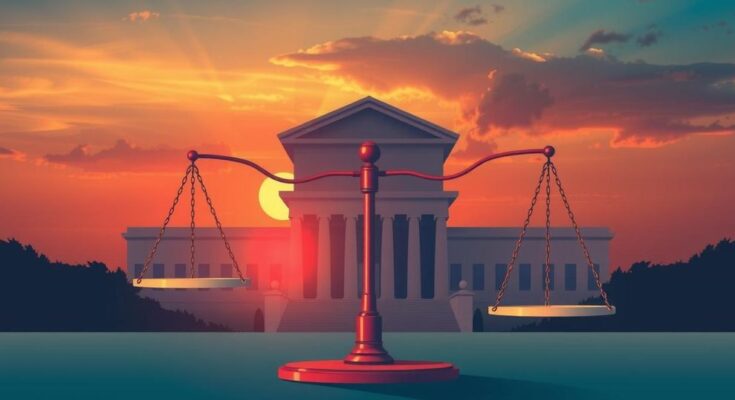Recent scrutiny of the March 2022 Framework Agreement highlights significant legal irregularities and corporate overreach by HPX, which threatens the Government of Liberia with financial liabilities due to a potentially illegal agreement. Lack of legislative oversight raises serious concerns about the agreement’s enforceability, prompting a call for public hearings to ensure accountability and transparency from the National Legislature.
The recent developments surrounding the March 2022 Framework Agreement and the actions of HPX warrant significant scrutiny. HPX has threatened the Government of Liberia with a default under this agreement if an Access Agreement is not signed by February 15, 2025. This threat could potentially result in Liberia having to pay US$37 million, which raises serious questions about the legality of the Framework Agreement itself. Since this amount represents a loan and not an investment, it should have received legislative ratification under Liberian law. Such a high interest rate of 10% compounded annually is indicative of a predatory loan and thus illegal.
The Framework Agreement, often referred to as the “Weah agreement,” suffers from a lack of comprehensive legislative oversight. Signed without proper parliamentary approval, this agreement undermines the democratic framework of governance and poses significant constitutional concerns regarding its legitimacy. The absence of necessary legislative endorsement exposes the Liberian Government to considerable legal risks, especially if HPX attempts to invoke the default clause threatening substantial financial liabilities.
Moreover, HPX’s assertion entails not just enforcement matters but also an unwarranted pressure strategy directed towards the Government of Liberia. The demand for a 30 mtpa rail capacity, despite unclear technical feasibility, and the push to replace ArcelorMittal—an operator with a proven performance in the sector—underscore HPX’s intention to prioritize external interests over Liberia’s developmental needs. Such maneuvers highlight their disregard for national interests, raising pertinent inquiries about the motivations behind a Guinean company intervening in Liberia’s affairs.
In light of these serious implications, it is imperative for Liberia’s National Legislature to take immediate action. A public hearing focused on the Framework Agreement should be convened to assess its legality and ramifications on national sovereignty. These hearings would allow various stakeholders, including civil society and industry experts, to express their concerns, thereby fostering transparency in this critical issue that could adversely impact the country’s regulatory framework.
The call for legislative oversight is a fundamental step to ensuring accountability in this matter. By conducting a rigorous examination of the Framework Agreement, the National Legislature can protect Liberia’s interests and ensure that future contracts are developed under accountability standards. The urgency of this situation, marked by HPX’s intimidating threats and the alleged irreparable flaws of the agreement, necessitates proactive measures by the Legislature to defend national integrity and foster sustainable economic development.
Thus, immediate actions by the National Legislature are essential. Commanding public hearings on the Framework Agreement and reviewing its stipulations will affirm Liberia’s commitment to lawful governance while protecting citizens from undue external pressures. The current scenario demands urgent legislative intervention to safeguard national interests and promote transparency across all dealings associated with international agreements.
In conclusion, the Framework Agreement between HPX and the Government of Liberia is fraught with legal and procedural irregularities. The lack of legislative oversight raises fundamental questions regarding its legitimacy, and HPX’s aggressive demands represent a clear threat to the nation’s sovereignty and economic independence. It is crucial for the National Legislature to conduct public hearings to scrutinize this agreement and safeguard the interests of Liberia and its citizens. Legislative intervention is imperative to ensure transparency, protect national interests, and affirm the rule of law.
Original Source: thenewdawnliberia.com




